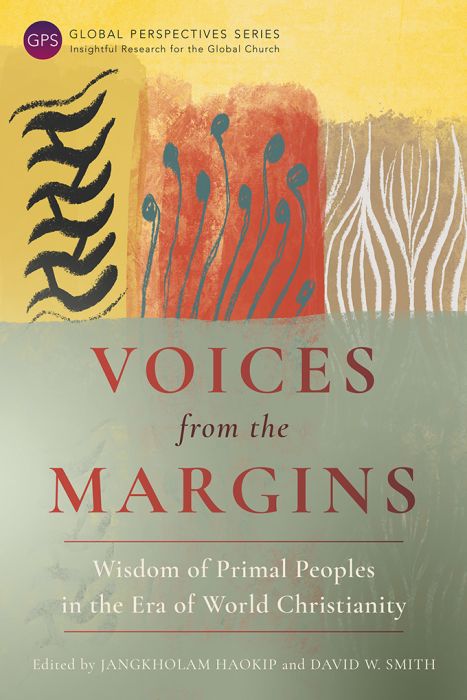Editor and author Jangkholam Haokip describes his involvement with Langham Literature as “truly providential.” As he was trying to get his work published for the first time, Jangkholam felt out of depth about the process and the expectation of publishers, but Langham Literature made publication possible for him.
Jangkholam shares, “I had a feeling that the standard of my work might not survive through the test of international academic publishers. In fact, someone discouraged me for the same reason. After two long years of gap, and the vision becoming irresistible, I decided to take a chance and wrote to the Langham Literature team and the positive response came totally as a surprise to me.”
Writing and publishing ‘Can God Save My Village?’
One of the results of this partnership was Jangkholam’s book, ‘Can God Save My Village?’. This book was published in 2014 and was the result of his PhD project in the context of ethnic conflicts among Christians in South Asia.

In a situation of conflict where both sides are Christian and draw their source of hope and security from the same God, the problem is not God as such but the understanding of God or theology. Often people subscribe to theology that domesticates God in a particular context and leads the people into conflict with other communities.
In a multi-ethnic context like South Asia, many of the divisions including denominational divides and much of the human suffering are due to tribalization and domestication of God. It is partly because of this that slowly people are beginning to leave the church today.
Jangkholam reflects, “My book ‘Can God Save My Village?’ was written from the perspective of communities who are victims of such domesticating theologies. The book is not about giving up on hope in God but rather, it is about exploring better ways of doing theology in a multi-ethnic and cultural context. It is a humble attempt to rescue a theology that got stuck at a ‘T’ junction by showing a new way out for the continued journey of faith. For this, the book argues for space for the participation of indigenous communities in doing theology.”
The publication of Voices from the Margins
Jangkholam’s recent co-edited book, ‘Voices from the Margins’ was the fruit of a long-time dream of his, as well as the mark of the beginning of his next level of Christian service.

This project holds great personal importance to him; he shares, “I was born and brought up in an Indigenous tradition in an extreme corner of South Asia’s Northeast. In the 1960s, Christianity came to my village inseparably with modern education, both promising a ‘civilized life’ with a good future but they were detrimental to indigenous wisdom. Having seen no alternative, the elders of my village decided to construct a thatched-roofed church for their children (us) and allowed us to attend school while they themselves refused to join those who they considered ‘lazy and untruthful people’ (Christians). It was at that time that my Dad who was the village priest warned me saying, ‘that which you are leaving and destroying now, you will spend your time and resources to search for but will never find it.’’’
Jangkholam didn’t take the warning from his father seriously, however, until much later in his life as a Christian. He was studying for his theological PhD in the United Kingdom and looking for both colonial and missionary materials on his own history and culture in the archives, but the findings were unsatisfactory as predicted by his father.

He shares, “In a continued search for meaning in the Christian message among indigenous communities, I left my position in a seminary in 2019 and started a Centre for Integrated/Indigenous Studies in South Asia.
Voices from the Margins was the first project of this centre which was designed to serve as a basic document for the development of indigenous Christian theology and spirituality in the emerging context of World Christianity.
The importance of the book lies in the creative conversations of scholars representing different indigenous communities on different continents. The book takes indigenous wisdom not simply as the medium of theological expression but as participants in the sacred task of theologising.”
Making theology accessible to everyone
One of the great benefits of Langham’s ministry is how it encourages and includes the perspectives of those in the Majority World, and connects people and ideas from across the globe. This is something Jangkholam is extremely thankful for and proud of.
He says, “The value of Langham Literature is found in the rare kind of service it provides to people worldwide. Collecting the contributions of the world’s best theologians and making them accessible to common people, particularly in poorer nations is something that has and will continue to have a lasting impact on the people.”
By Ngaire Buckley, Langham Partnership Australia.

